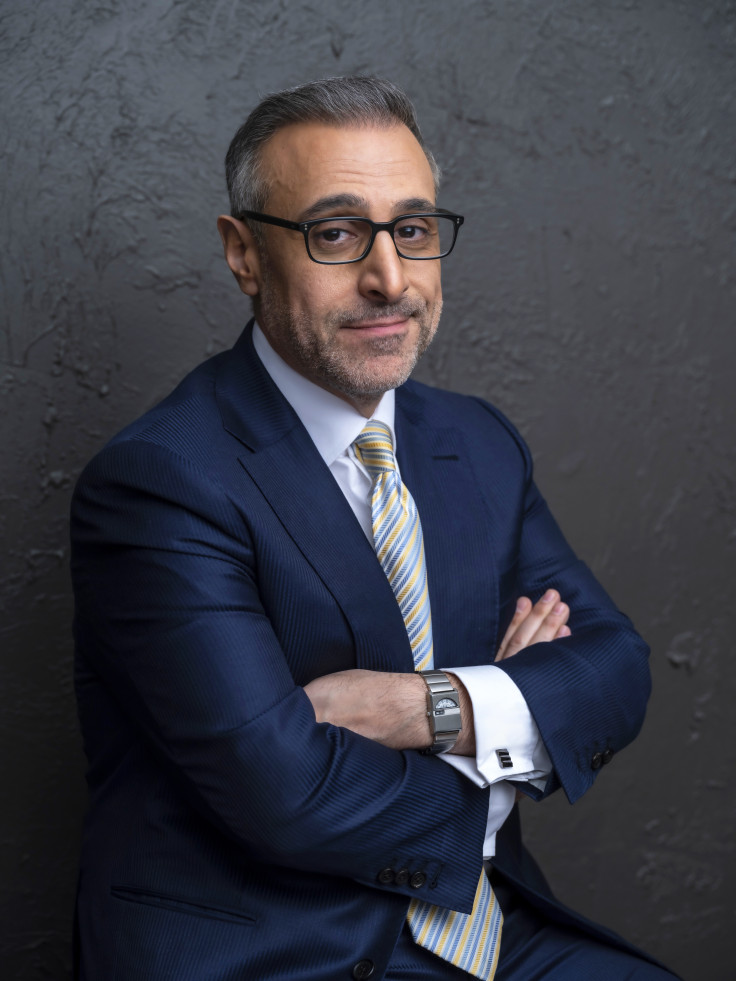Damien Costas On Reshaping The Thought Behind Media Influence, Responsibility, And Moulding Public Opinion
In an era where traditional media outlets are experiencing record-low audience numbers by conventional measures, their role in society remains pivotal

Information is constantly at our fingertips, and the media continues to wield immense power. Although the rise of digital platforms, podcasts, and independent voices like Joe Rogan has diversified the landscape, mainstream media remains a cornerstone in shaping public discourse and opinion. Few understand this dynamic better than Damien Costas, a media professional who has dug into the industry for years.
In an era where traditional media outlets are experiencing record-low audience numbers by conventional measures, their role in society remains pivotal. "Even though these 'legacy mediums' like television, radio, and print are seeing declines in viewership, they still hold the reins in setting the agenda," says Costas. "Their reach and credibility give them a unique position of influence that newer platforms often lack."
The Persistent Power of Mainstream Media
Costas emphasises that mainstream media's true power lies in its ability to decide what is newsworthy. "Many people think that popular podcasters have more influence over public opinion than mainstream outlets, and in some cases, that's true," he explains. "But what often goes unnoticed is that these podcasters frequently rely on the news agenda set by traditional media. They're providing opinions on stories that have already been put into circulation by these established outlets."
This agenda-setting power means that the stories chosen by mainstream media not only dominate the news cycle but also shape public discourse. Conversely, the decision to omit certain stories can lead to the general public overlooking those topics. This selective reporting can influence everything from public policy debates to cultural norms and societal attitudes.
Costas recounts an instance from his time at Penthouse magazine that underscores this influence.
"We once ran a series of investigative pieces on the political implications of certain social issues. These stories weren't covered extensively by other media at the time, but they sparked conversations that eventually caught on in larger outlets. It showed me just how critical media choice shapes people's opinions."
The Ethical Responsibility of Media Professionals

With this power comes great responsibility, and Costas is keenly aware of the ethical obligations of media ownership. "Media professionals have a huge responsibility like the discourse they foster," he says. "What we choose to cover—or not cover—has real consequences. It's not just about reporting the news; it's about shaping public opinion and, by extension, societal values."
Costas believes that this responsibility is twofold.
First, it involves ensuring accuracy and fairness in reporting. "In an age where misinformation can spread like wildfire, maintaining journalistic integrity is more important than ever. People trust established media outlets to give them the facts, and we can't betray that trust by being careless or biassed in our reporting."
Second, it involves fostering a healthy public discourse. "The media can amplify voices and perspectives that might otherwise go unheard. It's our job to create a platform for diverse viewpoints, especially those that challenge the status quo. But we must do so in a way that encourages constructive dialogue rather than division."
Costas's insights are particularly relevant in the context of business and society. As a media entrepreneur who has revitalised iconic brands like Penthouse, he understands the interplay between media influence and public perception. "In business, reputation is everything," he notes. "And much of that reputation is shaped by how the media portrays you.
He points to the example of corporate social responsibility (CSR) as an area where media coverage can make or break a company's public image. "CSR initiatives are often highlighted by the media, which can enhance a company's reputation if done well. But if the media uncovers inconsistencies or hypocrisies, it can just as easily lead to public backlash. This is why companies must be genuine in their efforts and transparent in their communication."
Adapting to a Changing Media Landscape
Moreover, Costas argues that media professionals must be mindful of their role in promoting economic growth and stability. "Our stories can influence everything from consumer behaviour to investor confidence. For example, how the media covers the situation during economic downturns can instil panic or encourage resilience. We need to be aware of the broader impact of our reporting."
Costas remains optimistic about the future as the media landscape continues to evolve but warns of the challenges ahead. "The rise of digital media has democratised information in many ways, a positive development. But it has also led to an oversaturation of content, making it harder for people to discern credible sources from unreliable ones."
He believes that mainstream media still has a crucial role, particularly in maintaining journalistic standards and providing a trusted source of information. "As much as the media landscape has changed, people still turn to established outlets when they need reliable news. Our job is to uphold those standards and continue to adapt to the changing environment without losing sight of our core principles."
He says, "At the end of the day, the media is not just a business—it's a public service. We have the power to inform, educate, and influence. But with that power comes the obligation to do so responsibly, ethically, and with the public's best interests at heart."
© Copyright IBTimes 2025. All rights reserved.





















